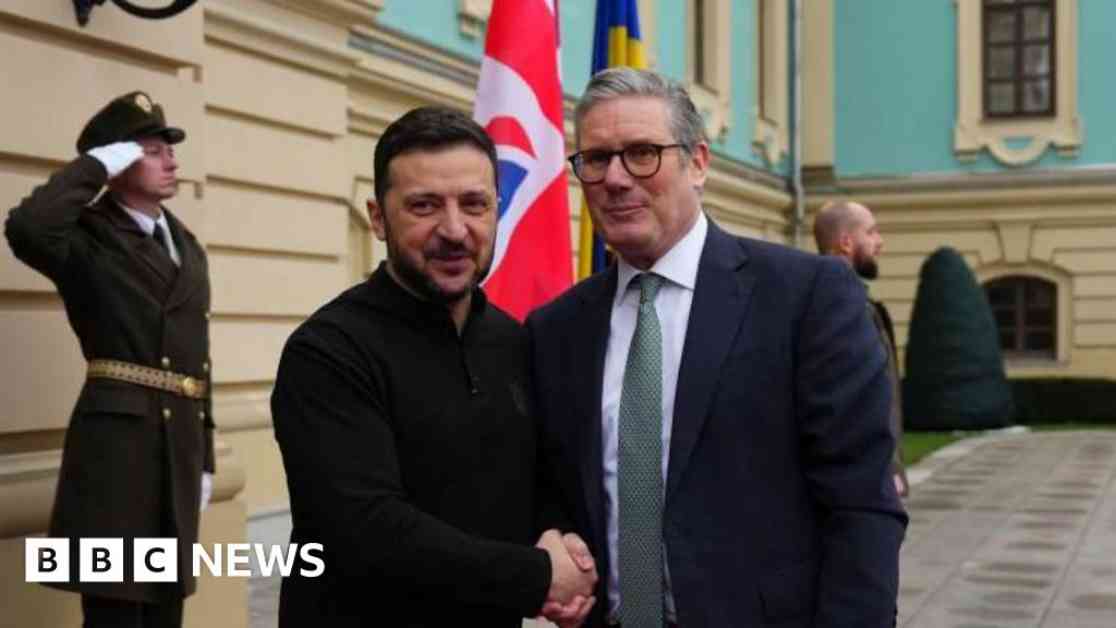Keir Starmer, the UK’s leader of the opposition, has made a bold statement regarding the potential deployment of British troops to Ukraine in a bid to enhance security and safeguard peace in the region. This move, he emphasized, is crucial not only for Ukraine but also for the overall stability of Europe and the UK. Starmer’s stance was articulated before an emergency summit in Paris alongside other European leaders, underscoring the gravity of the situation and the urgent need for collective action.
Starmer’s willingness to commit UK troops as part of a broader peace deal signals a significant shift in the country’s foreign policy approach. The essence of his message is clear – the UK must play an active role in ensuring Ukraine’s security to prevent further aggression from Russian forces.
The prospect of British troops being stationed in Ukraine is not without its challenges. Lord Dannatt, a former head of the Army, highlighted the limitations of the UK military in spearheading such a mission given its current state of readiness. He stressed the need for adequate resources and manpower to effectively carry out a peacekeeping operation in Ukraine.
In response to Starmer’s announcement, Health Secretary Wes Streeting echoed the sentiment that the war in Ukraine is a critical juncture for Europe and Britain’s national security. The need to secure Ukraine’s long-term future resonates with the UK’s commitment to contributing to a peaceful resolution in the region.
Concerns and Contingencies
The looming specter of Russia’s involvement in the conflict adds another layer of complexity to the situation. The US has emerged as a key player in peace negotiations, with President Donald Trump’s administration exploring avenues to broker a ceasefire between Ukraine and Russia. The dynamics of international diplomacy are fraught with challenges, as evidenced by the exclusion of European leaders from direct talks between the US and Russia.
Staying true to his commitment to Ukraine, Starmer emphasized the importance of Ukraine’s inclusion in any peace negotiations to prevent a repeat of past mistakes. Drawing parallels with the US-Taliban negotiations in Afghanistan, Starmer underscored the necessity of involving all relevant parties to ensure a sustainable peace agreement.
Path to Stability
As discussions around Nato membership for Ukraine gain momentum, the UK’s defense spending and military capabilities come under scrutiny. The debate over defense expenditure underscores the need for a collective effort among European nations to bolster security measures and fortify the alliance against external threats.
Starmer’s call for increased defense spending aligns with broader efforts to strengthen Nato’s resolve and enhance its operational capacity. The path to peace in Ukraine hinges on a cohesive strategy that prioritizes security, diplomacy, and cooperation among key stakeholders.
In conclusion, Starmer’s proactive stance on deploying UK troops in Ukraine reflects a nuanced approach to international security challenges. The road ahead is fraught with uncertainty, but the commitment to upholding peace and stability remains unwavering. As the UK navigates its role in the global arena, the decisions made today will shape the future of European security and the UK’s strategic interests.
The meeting in Paris serves as a pivotal moment for European leaders to forge a united front in addressing the crisis in Ukraine and charting a course towards lasting peace. The stakes are high, but the resolve to confront adversity head-on underscores the resilience and determination of nations to safeguard peace and uphold democratic values.













